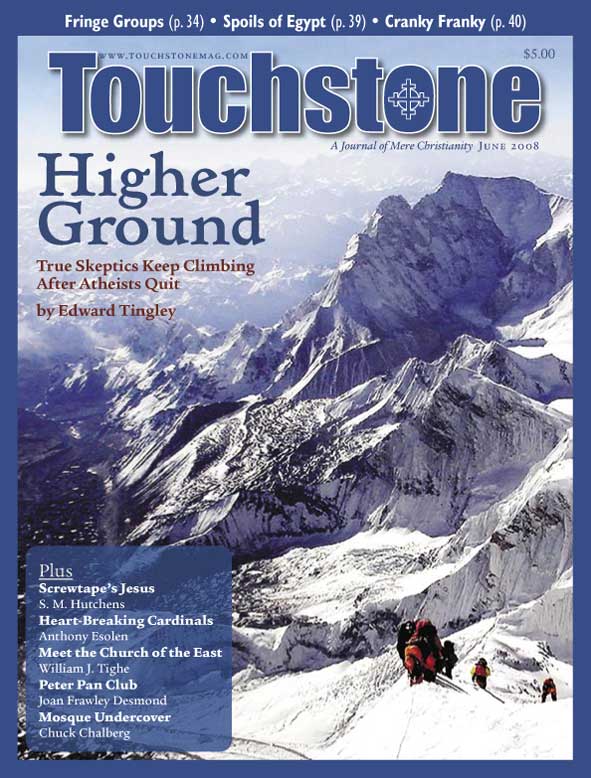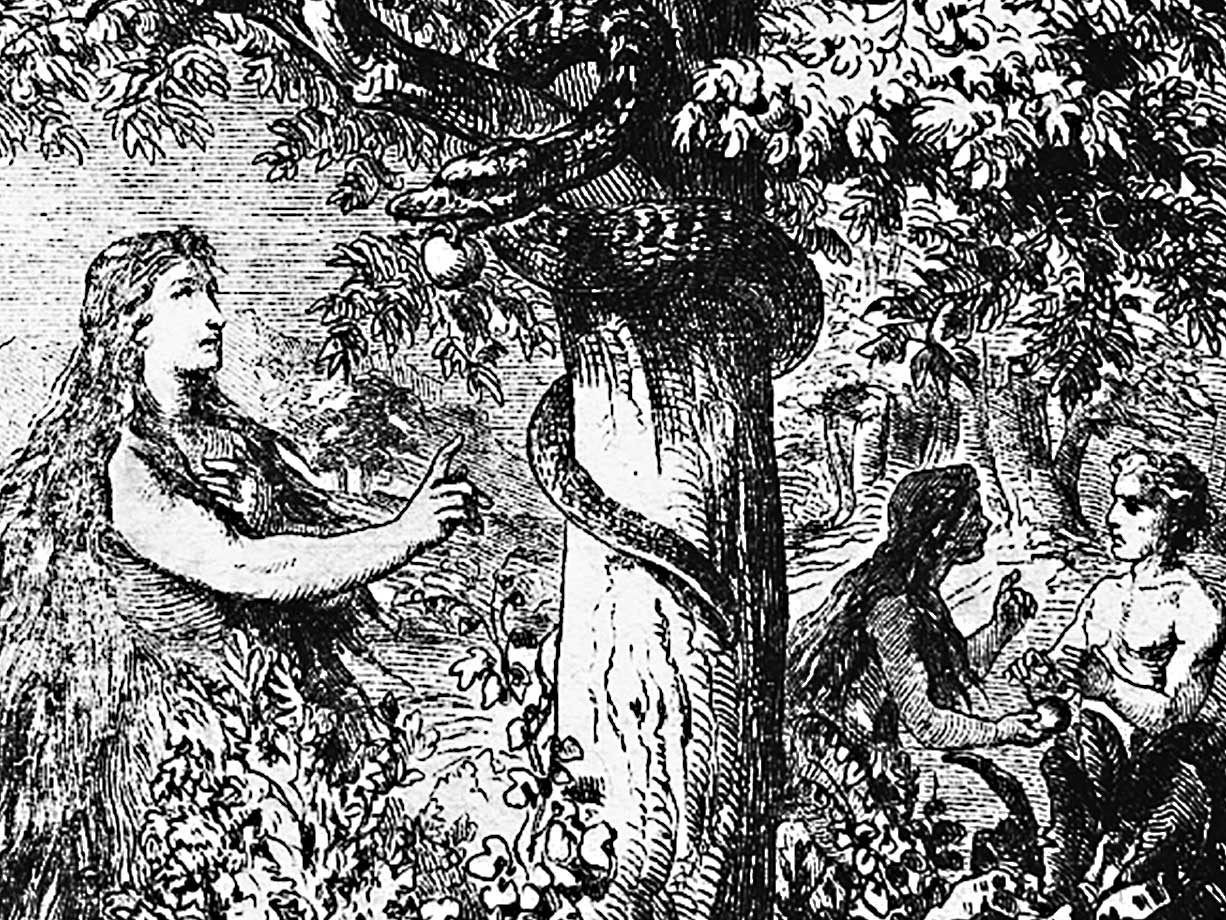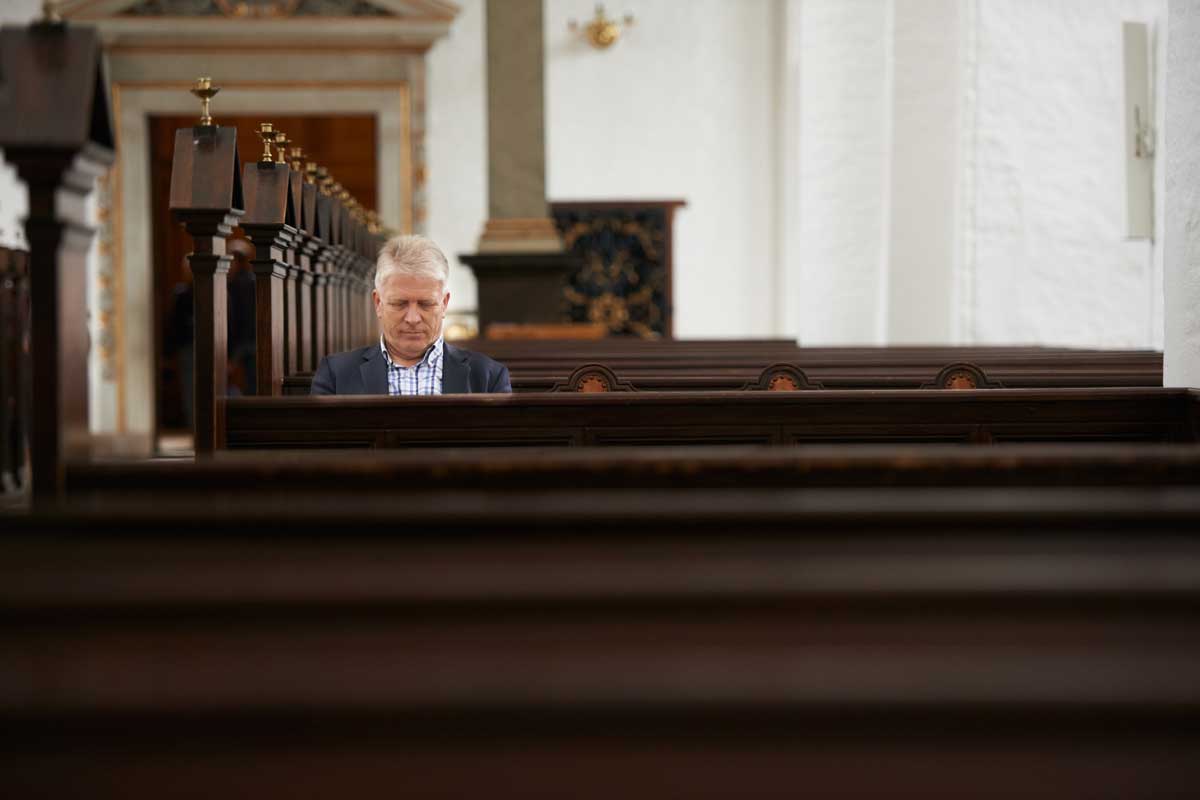Fetal Positions
Defending Life: A Moral and Legal Case Against Abortion Choice
by Francis J. Beckwith
Cambridge University Press, 2007
(312 pages, $22.99, paperback)
reviewed by Anne Hendershott
During the earliest days of legalized abortion, those on the pro-choice side argued that abortion was of little consequence: It was just the removal of an unformed clump of cells or a bit of tissue.
Two philosophers at the Jesuit-led Seattle University, Daniel Dombrowski and Robert Deltete, wrote in their Brief, Liberal, Catholic Defense of Abortion that the abortion of a non-sentient child is like the removal of a form of vegetation, like mowing the lawn or pruning a rose bush. In The Politics of Motherhood, Berkeley sociologist Kristin Luker described the unborn life throughout the nine months of pregnancy as “embryonic” rather than the more value-laden “fetal.”
Sophisticated Errors
It was easy to reject those arguments with a simple appeal to basic embryology. But today, pro-choice philosophers and legal scholars offer sophisticated arguments that acknowledge the possibility of personhood for unborn life, and a “limited” right to life, yet claim the support of reason for legal abortion. A sophisticated response is called for, and Francis J. Beckwith’s Defending Life provides it.
Drawing from philosophy, law, and science—but not theology—to construct a compelling case for governmental protection for the unborn, Beckwith challenges some of the most acclaimed advocates of abortion, including M.I.T. philosopher Judith Jarvis Thomson, Harvard-trained political scientist Eileen McDonagh, and the University of Colorado’s David Boonin.
The book is “not really a book about abortion, but rather a book about human equality,” writes Beckwith, a professor of philosophy and jurisprudence at Baylor University. Arguing that from the moment of conception, the unborn entity is a full-fledged member of the human community, he makes an effective case that it is morally wrong to kill any member of that community.
Although his defense of the pro-life position is certainly persuasive, at least to the average reader of Touchstone, the more powerful portions of his book are those that systematically dismantle the pro-choice arguments. His opponents present complex challenges to which Beckwith responds with an elaborate and philosophically sophisticated rejoinder—one that deserves a far more detailed analysis than can be provided in a brief book review.
The Violinist’s Problem
For example, he presents Thomson’s “violinist analogy,” the now classic thought experiment that describes a woman who awakens to find that she has been kidnapped and is lying back to back with a famous violinist who suffers from a kidney ailment. Her circulatory system is being used to keep him alive during the nine months required for his curative treatment. Thomson argues that the unborn entity, like the famous violinist, has no right to use the body of another against that person’s will—even if the unborn is fully human with a full right to life and the body is that of the mother.
Arguing that her view of personhood and “right to life” is distorted by her own “minimalist understanding of autonomy and choice,” Beckwith is especially critical of her assertion that, since the unborn threatens the liberty of the pregnant woman, reason requires us to grant her the right to abortion over any claim to moral status the fetus may have. As Thomson puts it: “Severe constraints on liberty may not be imposed in the name of considerations that the constrained are not unreasonable in rejecting.”
Beckwith notes that Thomson has to show, rather than merely stipulate, that reason requires us to conclude that liberty is the good that is at stake. Offering a creative analogy of his own, he asks the reader to imagine a shooting range next to an elementary school playground. The county prohibits the range from operating when the students are on the playground because there is a one-percent chance that a bullet will ricochet off one of the targets and hit a child.
He asks us to imagine that the marksmen who practice at the range employ Thomson’s principle to rebut the commission’s policy. The commission’s response would likely be: “Yes, your principle may be correct, but you are in fact unreasonable in rejecting the policy’s constraint on your liberty, for reason requires that you accept a public policy to protect the innocent from unjust harm.”
Applying this analogy to Thomson’s argument, he argues in turn that while her principle may be correct, “rejecting the pro-life constraint on the pregnant woman’s abortion liberty” is unreasonable, “for reason requires that you accept a public policy to protect the innocent from unjust harm if it is reasonable to believe that abortion is prima facie unjustifiable homicide.”
Beyond arguments for liberty, Beckwith counters Thomson’s arguments on the contested status of the unborn. Thomson argues that although she knows of no conclusive reason for denying that fertilized eggs have a right to life, she also knows of “no conclusive reason for asserting that they do have a right to life.” Beckwith responds that even if this is true, it is still an excellent reason not to permit abortion, because an abortion may result in the death of a human entity who has a full right to life.
The Invasive Fetus
Beckwith extends his metaphysical argument on the nature of the unborn to McDonagh’s Breaking the Abortion Deadlock. While McDonagh acknowledges the possibility of fetal personhood, she equates the “invasion” of the fetus to an attack by a rapist, arguing that, just as a woman has the right to defend herself against a rapist, she may use deadly force to expel a fetus.
Using McDonagh’s own understanding of the “rights” of women to defend themselves from intruders, Beckwith points out that abortion advocates like McDonagh and Thomson speak of “rights” as essential moral properties human beings possess, implying that when the law denies human beings their rights, it is not treating them in accord with their natural purpose. Thus, their acknowledgement of fetal personhood, human nature, natural purpose, and inherent rights undermines their arguments, because such rights are naturally accorded to all members of the human community.
And, although these abortion advocates have attempted to deny it, most reasonable people know that pregnancy “is what sometimes results when all the participants’ parts are functioning properly, for that is to what these parts are naturally ordered . . . [T]o understand one’s self and one’s nature is to understand that one’s sexual organs are ordered toward procreation.” It follows that consent to sexual intercourse does entail consent to pregnancy, whether or not one intends to create a child.
“Sex,” he writes, “is the act engaged in by agents from which pregnancy is the designed (though maybe not the desired) result . . . [T]he telos of reproductive organs is reproduction, for sperm and ova seem intrinsically ordered toward that very purpose.”
No Right
Beckwith concludes with a logical analysis of the nature of human rights and the unborn. Demonstrating that the unborn child is biologically an individual member of the human species from the moment of conception, he declares that if we are the “bearers of moral rights by nature (including the right to choose) then there can be no right to abortion, for the one who has the right to choose is identical to her prenatal self.”
He reminds us that the right to abortion can only be purchased at the price of abandoning natural rights: “rights that gave rise to the cluster of beliefs on which the rule of law, constitutional democracy, and human equality depend. . . . Consequently, the right to abortion can only be purchased at the price of abandoning natural rights and replacing them with the will to power.” He knows that few of us are willing to pay that price.
Anne Hendershott is Professor of Urban Affairs at the King's College in New York City (www.tkc.edu). She is the author of Status Envy: The Politics of Catholic Higher Education (Transaction, 2008). She and her husband have two grown children and are members of St. Mary's Church in Milford, Connecticut.
subscription options
Order
Print/Online Subscription

Get six issues (one year) of Touchstone PLUS full online access including pdf downloads for only $39.95. That's only $3.34 per month!
Order
Online Only
Subscription

Get a one-year full-access subscription to the Touchstone online archives for only $19.95. That's only $1.66 per month!
bulk subscriptions
Order Touchstone subscriptions in bulk and save $10 per sub! Each subscription includes 6 issues of Touchstone plus full online access to touchstonemag.com—including archives, videos, and pdf downloads of recent issues for only $29.95 each! Great for churches or study groups.
Transactions will be processed on a secure server.
more on Feminism from the online archives
more from the online archives

28.2—March/April 2015
Man, Woman & the Mystery of Christ
An Evangelical Protestant Perspective by Russell D. Moore
calling all readers
Please Donate
"There are magazines worth reading but few worth saving . . . Touchstone is just such a magazine."
—Alice von Hildebrand
"Here we do not concede one square millimeter of territory to falsehood, folly, contemporary sentimentality, or fashion. We speak the truth, and let God be our judge. . . . Touchstone is the one committedly Christian conservative journal."
—Anthony Esolen, Touchstone senior editor











